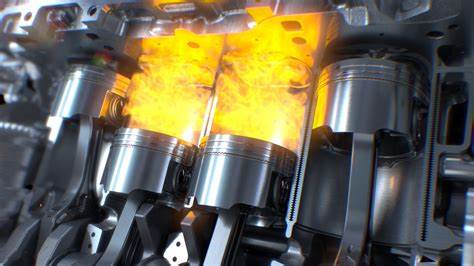
-
Published: 30 March 2023

Germany's efforts to persuade the European Union to exempt synthetic fuels from the 2035 carbon dioxide ban have paid off, but the move is not as easy as it appears. Here's what happened.
Edit | Paul Mitchell
Economics news section
March 30, 2023
Germany, Italy, and several other EU member states have refused to agree to so-called combustion bans without explicitly allowing synthetic fuels to be implemented. Pre-existing wording in the legislation actually allowed synthetic fuels to be used after 2035 because their fight is against CO2 emissions, not combustion.
But it wasn't forthright, so Germany's transport minister, Volker Wessing, declined to lend support for the legislation without warning, saying that "a ban on the combustion engine, when it can be operated in a climate-neutral manner, seems wrong."
Now, this privilege has been approved and clarified, but there is a catch.
“New internal combustion engine vehicles can still be registered after 2035 if they are filled exclusively with CO2-neutral fuel,” Wissing wrote on Twitter, as reported by Reuters.
The problem is that the clause within the franchise is very restrictive.
Yes, a car with an internal combustion engine can be sold and used in Europe after 2035 if it runs on carbon-free fuel, but the problem is that these cars can only run on carbon-free fuel.
That is, if carbon-containing fuel is put in, the car will not start, which is not available now.
This means that the industry is in trouble.
The whole attraction of synthetic fuels is that they use hydrocarbons created by capturing carbon dioxide from the air and synthesizing it with green hydrogen.
Its chemical composition is similar to regular gasoline and it works just like regular gasoline.
The regular Porsche 911 has already proven that this is possible.
Thus, existing engine technology does not need to be adapted, and gas stations do not need to make any adjustments.
But if this legislation forces synthetic fuels to operate in a unique way to prevent the use of non-carbon neutral fuels, most of those advantages are negated.
Making e-fuels different from regular fuels cancels out years of research and development that was clearly intended to make e-fuels work in today's engines.
{source}<script async src="https://pagead2.googlesyndication.com/pagead/js/adsbygoogle.js?client=ca-pub-4474625449481215"
crossorigin="anonymous"></script>
<!-- moss test ad -->
<ins class="adsbygoogle"
style="display:block"
data-ad-client="ca-pub-4474625449481215"
data-ad-slot="6499882985"
data-ad-format="auto"
data-full-width-responsive="true"></ins>
<script>
(adsbygoogle = window.adsbygoogle || []).push({});
</script>{/source}
